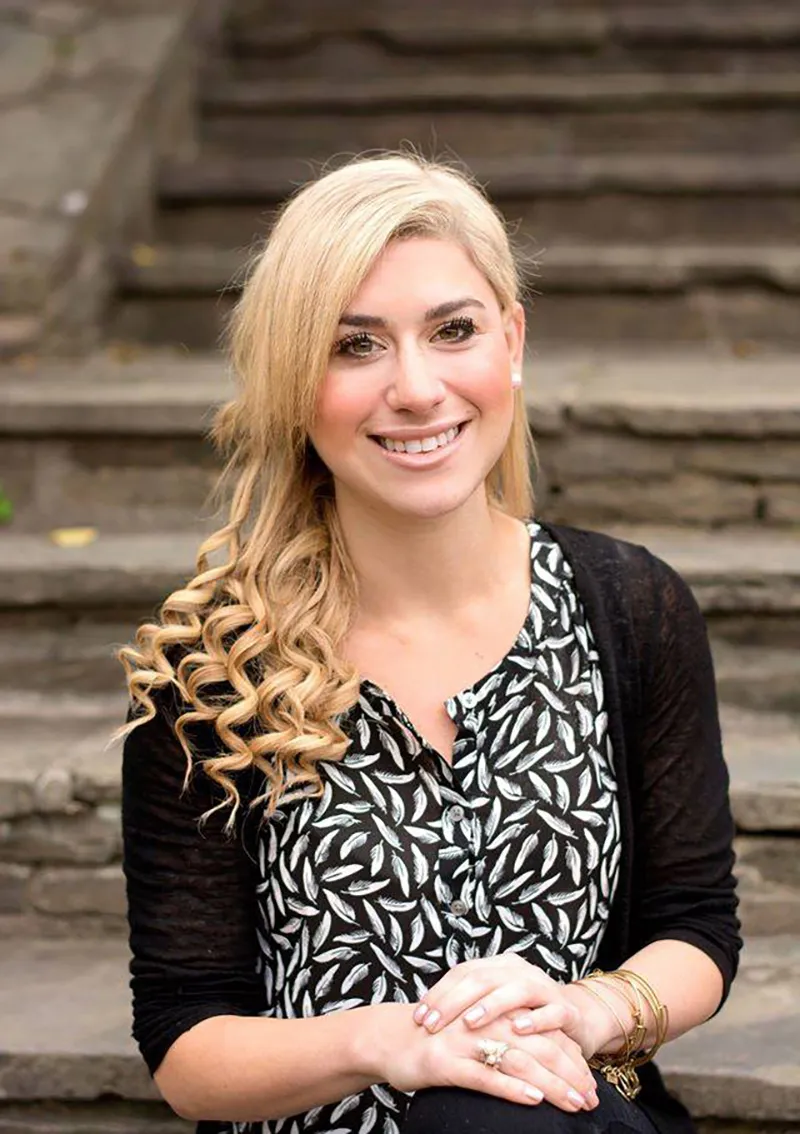
An eating disorder has the potential to completely change your life from the inside out. Living with one can be like having a voice in your head that tells you everything you’re doing is wrong, and while everyone experiences eating disorders differently, it’s never a pleasant experience.
Jennifer Rollin is an eating disorder therapist and the founder of The Eating Disorder Center in Rockville, Maryland. She’s helping people build healthier relationships with themselves and food altogether.
After recovering from her own eating disorder, Rollin knew she wanted to become a therapist and help others overcome their struggles with their eating disorders. In her graduate school practicums, Rollin naturally gravitated towards clients with eating disorders and wanted to help them.
“The eating disorders myself and my practice work with include anorexia, bulimia, binge eating disorder, orthorexia, OSFED (Other Specified Eating Disorder) and ARFID (Avoidant Restrictive Food Intake Disorder).”
Jennifer Rollin wants to bring more attention to eating disorders that are often talked about less in the media, such as orthorexia and binge eating disorders.
While anorexia often gets most of the coverage in the press, Rollin says it’s important to talk about the other eating disorders that are affecting people.
She goes on to say that anorexia is so widely covered in the press because there is a public fascination with seeing people at their lowest weights.
Unfortunately, the media can sometimes glamorize eating disorders, and specifically anorexia because weightloss itself is glamorized in our society.
According to Jennifer Rollin, It’s important to take a few steps back and focus on the many kinds of eating disorders that affect people. That way we can educate ourselves about how to help them – whether it be a friend or family member, or even an acquaintance who’s open about their struggle.
“I think the recovery journey is unique for every person,” says Rollin.
“It’s about uncovering anti-fat bias that might exist within you. It’s about unlearning diet culture and food rules, and developing a healthier relationship with food, movement, and ultimately yourself.”
Jennifer Rollin says letting go of harmful ideals takes deep work. After all, many of them have been imposed on us through society or through past trauma. There are also systems of oppression in our culture that we’re often unaware of that influence our negative thought patterns and self-esteem.
Recovering from an eating disorder today can be especially difficult because of the pervasive messaging in our society about the so-called ‘good’ and ‘bad’ foods.
“There’s the thin ideal standard, and a culture that glorifies weight loss at all costs,” says Rollin.
“Because of this, it can be difficult to do the opposite of what culture is telling us is the norm. You’re doing something that’s really going against the predominant cultural narrative.”
One way to change the narrative and to improve the messaging in our culture, according to Jennifer Rollin, is to put out healthier messages on social media, and in the news media as well.
It’s also important to cultivate healthier relationships with food altogether, rather than how much you’re eating.
Unpacking anti-fat bias, as Rollin mentioned earlier, is also crucial.
“Looking at your own belief system and your own prejudice, I think could be really helpful.”
To learn more about Jennifer Rollin, you can visit The Eating Disorder Center.
Media Contact
Company Name: The Eating Disorder Center
Contact Person: Jennifer Rollin
Email: Send Email
Country: United States
Website: https://www.jenniferrollin.com/
